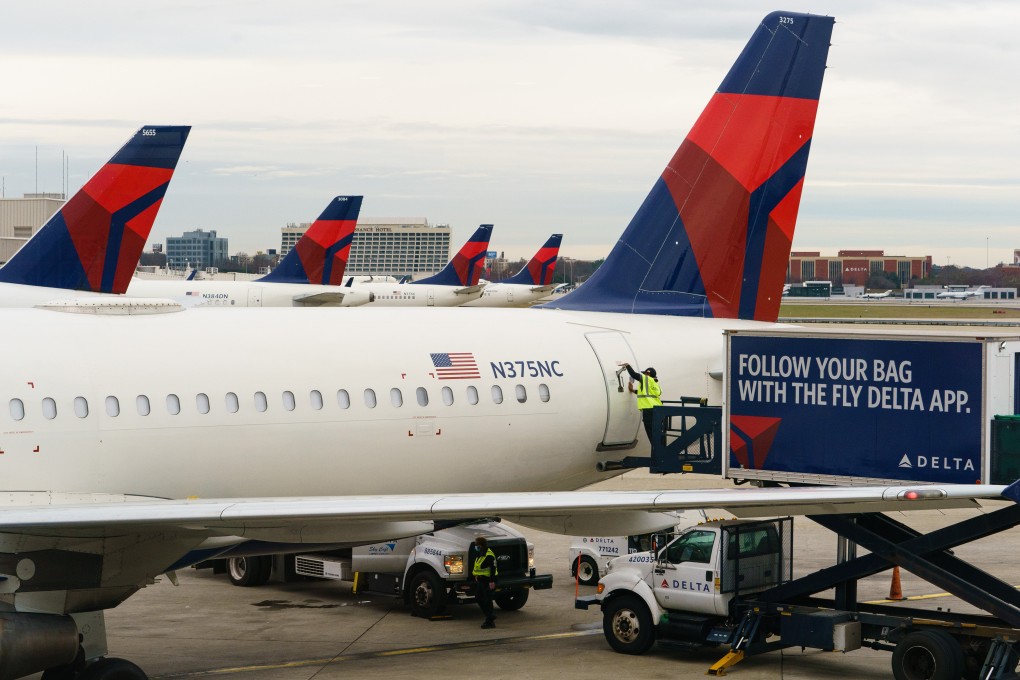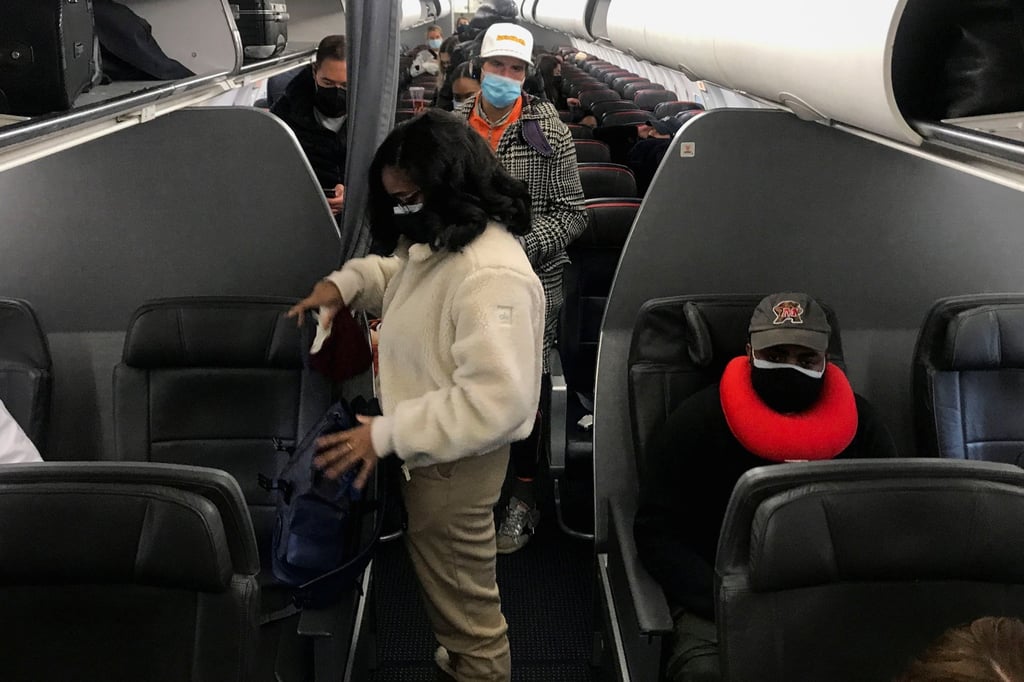Coronavirus: Omicron doubles or triples the risk of infection on flights, says IATA expert
- There’s much more random movement and potential for face-to-face contact and generally reduced air flows, says IATA expert
- The biggest risk on an aeroplane itself is sitting next to someone who is ill, but the ‘riskiest’ part of air travel is the time before and after flights

Omicron could double the risk of catching Covid-19 during a flight according to an airline industry medical expert, who warned that the airport carries a higher likelihood that the virus could spread than on the aeroplane itself.
The highly transmissible Omicron variant has been confirmed in more than 100 countries and has quickly become the most common cause of new Covid-19 cases in the US and South Africa.
“Whatever the risk was with Delta, we would have to assume the risk would be two to three times greater with Omicron, just as we’ve seen in other environments,” Dr David Powell, medical adviser at the International Air Transport Association, said on Tuesday.
“The relative risk has probably increased, just as the relative risk of going to the supermarket or catching a bus has increased with Omicron,” Powell added.

Powell said that the risk of catching Covid-19 caused by the Delta variant on a flight had been “low”, though the exact level of that possibility had been unclear. Most of the data about the transmission of the virus on aircraft was from March 2020 before there was easily available testing, masks, organised boarding procedures, and a high degree of awareness about not flying if you were unwell, he said.
Powell told Bloomberg that the requirements for air flows on board a plane were generally “much more stringent” than they were for airports.